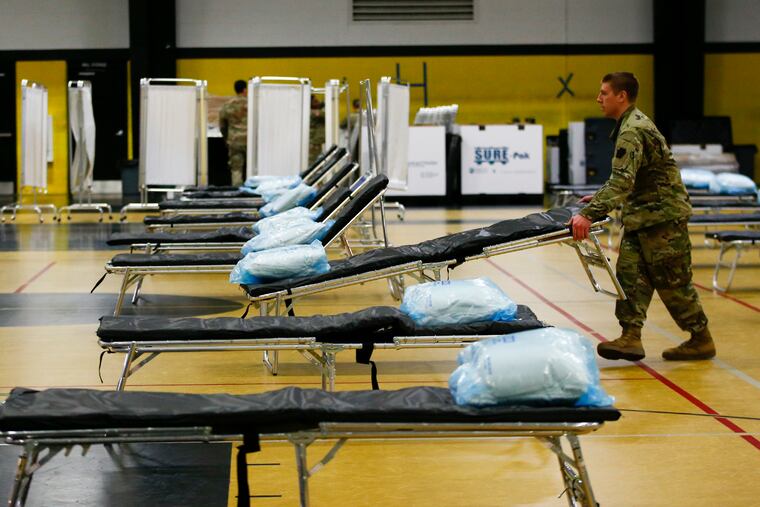No, seriously, coronavirus parties for herd immunity are a bad idea, experts say. ‘Absolutely not.’
Young people get sick, too, and they can spread the disease to others.

There’s an idea for combating the coronavirus that might seem logical, but experts beg you not to try. Because it is, in fact, a bad idea: a coronavirus party to get lots of young people sick.
It’s an idea that some people have proposed since there’s been so much messaging around older people being particularly at risk. If we expose young people, the thinking goes, they’ll experience the mild symptoms that are most common for them, and then they’ll pull through and become immune.
» FAQ: Your coronavirus questions, answered
That would create herd immunity, right — if they’re immune, they’ll no longer be able to transmit the virus to other, more vulnerable people? A few people have asked The Inquirer if this is actually a good idea.
» READ MORE: Do you have questions about coronavirus? Ask us here.
“Absolutely not,” said Jen Caudle, a family physician and professor at Rowan University’s School of Osteopathic Medicine. “It’s not that simple.”
“Definitely not,” said Jayatri Das, chief bioscientist at the Franklin Institute.
“This is a dangerous idea,” said Megan Culler Freeman, a pediatric infectious disease fellow at UPMC Children’s Hospital of Pittsburgh. “This suggestion is a reckless approach to this disease.”
All three noted that young people are at lower risk for poor medical outcomes, but are not entirely safe.
“Young people can develop serious symptoms as badly as older people in terms of requiring hospitalization," said Das, who received her Ph.D. in ecology and evolutionary biology from Princeton University. "Not as many of them die, but in terms of hospital admissions and ICU care, we cannot assume that young people will be fine.”
So while it’s true that most young people might be able to recover fairly easily from COVID-19 — and most might have mild symptoms, if any — others experience severe symptoms and some have died.
And right now, Freeman said, “we are not able to predict which young people will have minimal symptoms and which will be gravely ill.”
It’s also unclear what immunity people might have after recovering from infection. People who recover from infection are believed to be immune for a while, experts said, because their immune systems have fought off the virus and produced the antibodies to do so. But much is uncertain, including how long people might be immune.
It’s one of many things still being figured out about the coronavirus, which is so new that much is unknown about it.
Even if you could determine which young people would be medically OK after being infected — again, you can’t — the logistics of coronavirus parties for herd immunity would be incredibly complex. After all, how well could you track every exposed young person, or trust them to not come into any contact with anyone else?
Young people who are exposed do transfer the virus to others, Caudle pointed out. After infecting only “safe” young people, you’d have to ensure they didn’t infect anyone else.
“Just as a matter of logistics, it seems like a very difficult process to manage,” said John Zurlo, division director of infectious diseases at Thomas Jefferson University Hospital. “Who’s going to manage something like that?”
That’s not to knock herd immunity.
Herd immunity is an important idea: The more people who are immune, the less a disease can spread, and the lower the transmission risk to vulnerable people who cannot themselves be immunized. That’s why, Freeman said, vaccination is so important for diseases such as measles.
But there’s no vaccine for COVID-19. The best approach to protecting everyone, the experts said, is for everyone to try to prevent becoming infected or spreading the disease. That also helps “flatten the curve” to reduce the burden on the health-care system.
That means falling back on the guidance that’s been repeated throughout the pandemic: Stay home. Avoid contact with others. If you go outside, maintain social distancing and minimize physical contact. Wash your hands often.
“Ultimately, no matter what approach we take, we want to get to a point where there is herd immunity,” Das said. Until then, she said, “it’s a question of how do our health-care systems deal with the peak.”